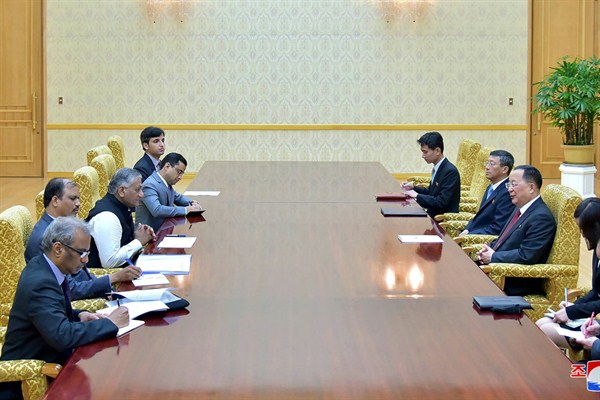In mid-May, India sent a junior foreign minister to Pyongyang for an official visit, the first such visit by an Indian government minister to North Korea in almost 20 years. The trip took place against the backdrop of intense diplomatic engagement between Washington and Pyongyang that could ease North Korea’s economic isolation. In an email interview, Balbina Hwang, an adjunct assistant professor at Georgetown University, discusses North Korea’s economic and diplomatic ties with South and Southeast Asian countries, and the implications of the potential thaw on the Korean Peninsula for these relationships.
World Politics Review: What has been the nature of North Korea’s relations historically with India and other Asian countries, excluding China, Japan and South Korea?
Balbina Hwang: India’s relations with North Korea are interesting because they are historically complex. They began very poorly when India strongly condemned the North’s invasion of South Korea in June 1950. But as a member of the Non-Aligned Movement, India refused to take sides in the Cold War. While it supported South Korea during the Korean War and made significant medical and humanitarian contributions to the war effort, it refused to provide any military assistance to the United Nations military action. India eventually developed strong economic and trade ties with South Korea over the decades. India has also been one of the strongest and most outspoken critics of North Korea’s nuclear proliferation efforts.

